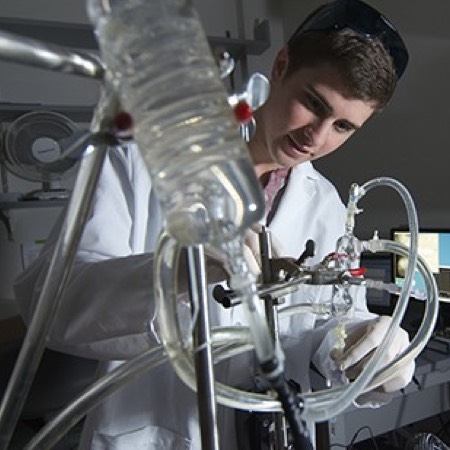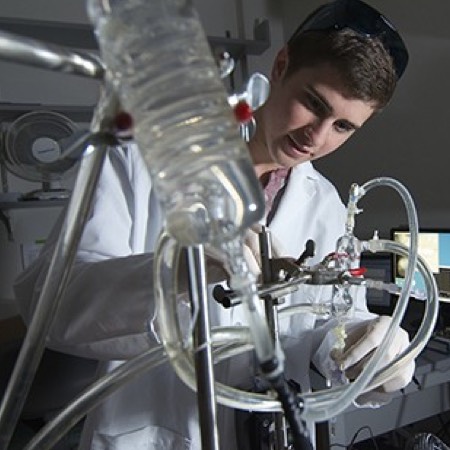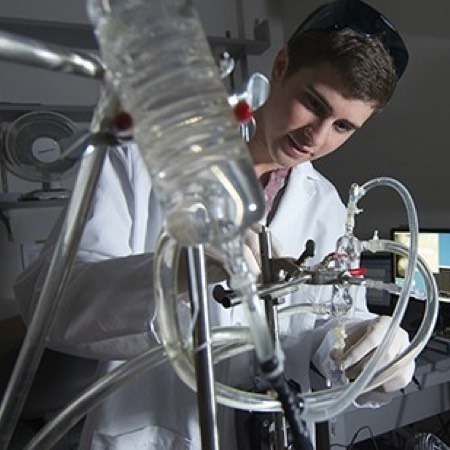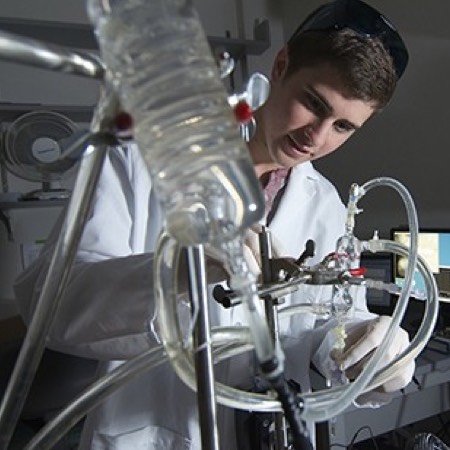Curriculum
FIRST YEAR
FALL SEMESTER |
||||
|
Course Code |
Course Title |
Credit |
ECTS |
R/E |
|
Introduction to Literature |
3 |
6 |
R |
|
|
Short Story |
3 |
6 |
R |
|
|
Classical Mythology |
3 |
6 |
R |
|
|
Introduction to Information Technologies and Artificial Intelligence |
3 |
6 |
R |
|
|
Turkish I |
2 |
2 |
R |
|
|
|
Total |
14 |
26 |
|
SPRING SEMESTER |
||||
|
Course Code |
Course Title |
Credit |
ECTS |
R/E |
|
English Literature: Middle Ages to Renaissance |
3 |
6 |
R |
|
| Advanced Englısh Practıces |
3 |
8 |
R |
|
|
Introduction to Cooperative Education |
1 |
2 |
R |
|
|
Turkish II |
2 |
2 |
R |
|
|
|
(University Elective) |
3 |
6 |
E |
|
|
(Department Elective) |
3 |
6 |
E |
|
|
Total |
15 |
30 |
|
SUMMER SEMESTER |
||||
|
Course Code |
Course Title |
Credit |
ECTS |
R/E |
|
English Speaking and Communication Skills |
3 |
8 |
R |
|
|
English Literature: Restoration to Romantic Age |
3 |
6 |
R |
|
|
The Rise of the Novel |
3 |
6 |
R |
|
|
Atatürk’s Principles and History of Turkish Revolution I |
2 |
2 |
R |
|
|
|
(Department Elective) |
3 |
6 |
E |
|
|
(University Elective) |
3 |
6 |
E |
|
|
Total |
17 |
34 |
|
SECOND YEAR
FALL SEMESTER |
||||
|
Course Code |
Course Title |
Credit |
ECTS |
R/E |
|
English Literature: Victorian Age to the Present |
3 |
6 |
R |
|
|
Critical Thinking and Academic Writing |
2 |
6 |
R |
|
|
Atatürk’s Principles and History of Turkish Revolution II |
2 |
2 |
R |
|
|
|
(Department Elective) |
3 |
6 |
E |
|
|
(Faculty Elective) |
3 |
6 |
E |
|
|
(University Elective) |
3 |
6 |
E |
|
|
Total |
16 |
32 |
|
SPRING SEMESTER |
||||
|
Course Code |
Course Title |
Credit |
ECTS |
R/E |
|
Entrepreneurship and Leadership |
2 |
4 |
R |
|
|
Shakespeare |
3 |
6 |
R |
|
|
|
(Department Elective) |
3 |
6 |
E |
|
|
(Department Elective) |
3 |
6 |
E |
|
|
(Faculty Elective) |
3 |
6 |
E |
|
(Second Foreign Language I) |
3 |
5 |
E |
|
|
|
Total |
17 |
33 |
|
SUMMER SEMESTER |
||||
|
Course Code |
Course Title |
Credit |
ECTS |
R/E |
|
Cooperative Education I |
0 |
8 |
R |
|
THIRD YEAR
FALL SEMESTER |
||||
|
Course Code |
Course Title |
Credit |
ECTS |
R/E |
|
Literary Translation |
3 |
6 |
R |
|
|
|
(Department Elective) |
3 |
6 |
E |
|
|
(Department Elective) |
3 |
6 |
E |
|
|
(University Elective) |
3 |
6 |
E |
|
(Second Foreign Language II) |
3 |
5 |
E |
|
|
|
Total |
15 |
29 |
|
SPRING SEMESTER |
||||
|
Course Code |
Course Title |
Credit |
ECTS |
R/E |
|
Cooperative Education II |
0 |
8 |
R |
|
SUMMER SEMESTER |
||||
|
Course Code |
Course Title |
Credit |
ECTS |
R/E |
|
Literary Theory and Criticism I |
3 |
7 |
R |
|
|
American Drama |
3 |
6 |
R |
|
|
Romantic Poetry |
3 |
6 |
R |
|
|
|
(Department Elective) |
3 |
6 |
E |
|
|
(University Elective) |
3 |
6 |
E |
|
(Second Foreign Language III) |
3 |
5 |
E |
|
|
|
Total |
18 |
36 |
|
FOURTH YEAR
FALL SEMESTER |
||||
|
Course Code |
Course Title |
Credit |
ECTS |
R/E |
|
Cooperative Education III |
0 |
8 |
R |
|
SPRING SEMESTER |
||||
|
Course Code |
Course Title |
Credit |
ECTS |
R/E |
|
Literary Theory and Criticism II |
3 |
7 |
R |
|
|
|
(Department Elective) |
3 |
6 |
E |
|
|
(Department Elective) |
3 |
6 |
E |
|
|
(Department Elective) |
3 |
6 |
E |
|
|
(University Elective) |
3 |
6 |
E |
|
(Second Foreign Language IV) |
3 |
5 |
E |
|
|
|
Total |
18 |
36 |
|
|
YEAR |
CREDIT |
ECTS |
NUMBER OF COURSES |
|
1 |
29 |
56 |
11 |
|
2 |
33 |
66 |
12 |
|
3 |
32 |
62 |
11 |
|
4 |
36 | 72 | 12 |
|
TOTAL |
130 |
256 (+24 CE) |
46 |
Principles
- University elective courses refer to the courses that are offered by all departments of the university with the exception of the courses offered by the Department of English Language and Literature.
- Faculty elective courses refer to the courses that are offered by the departments of the Faculty of Letters with the exception of courses offered by Department of English Language and Literature.
- Students of English Language and Literature must take the department required courses İDE 103 Advanced English Practices and İDE 104 English Speaking and Communication Skills instead of the university required English courses ING001 and ING002.
- Students of English Language and Literature are exempt from the university required courses ING003 English Writing Skills and ING004 English Presentation Skills, and cannot take these courses as electives.
- “Department elective courses” must be selected from among the courses below:
|
LIST OF DEPARTMENT ELECTIVE COURSES |
|||
|
Course Code |
Course Title |
C |
ECTS |
|
British Cultures |
3 |
6 |
|
|
İDE 116 |
Gothic Literature |
3 |
6 |
|
İDE 117 |
Diction and Speed Reading |
3 |
6 |
|
İDE 118 |
Blogging |
3 |
6 |
|
İDE 203 |
Science and Technology in Literature |
3 |
6 |
|
İDE 204 |
Literature and Power |
3 |
6 |
|
İDE 205 |
Literature and Philosophy |
3 |
6 |
|
İDE 206 |
Literature and Cinema |
3 |
6 |
|
İDE 207 |
Literature and Music |
3 |
6 |
|
İDE 208 |
Literature and Psychology |
3 |
6 |
|
İDE 209 |
Literature and Politics |
3 |
6 |
|
İDE 210 |
Introduction to Linguistics |
3 |
6 |
|
İDE 211 |
Medieval English Literature |
3 |
6 |
|
İDE 212 |
Renaissance Poetry and Prose |
3 |
6 |
|
İDE 213 |
17th Century and Restoration Age English Literature Restorasyon Dönemi İng. Edb. |
3 |
6 |
|
İDE 214 |
18th Century English Literature |
3 |
6 |
|
İDE 215 |
Elizabethan and Jacobean Drama |
3 |
6 |
|
İDE 216 |
19th Century English Drama |
3 |
6 |
|
İDE 218 |
Victorian Novel |
3 |
6 |
|
İDE 219 |
Shakespeare I |
3 |
6 |
|
İDE 220 |
Classical Literature |
3 |
6 |
|
İDE 221 |
Her Story |
3 |
6 |
|
İDE 222 |
Selections from World Literature I |
3 |
6 |
|
İDE 223 |
American Poetry |
3 |
6 |
|
İDE 225 |
American Novel |
3 |
6 |
|
İDE 226 |
African-American Literature |
3 |
6 |
|
İDE 227 |
Literatures of Minorities |
3 |
6 |
|
İDE 228 |
Selections from World Literature II |
3 |
6 |
|
İDE 229 |
Latin |
3 |
6 |
|
İDE 230 |
Reflections of Human and Nature in Literature |
3 |
6 |
|
İDE 231 |
Satire |
3 |
6 |
|
İDE 232 |
Travel Writing |
3 |
6 |
|
İDE 233 |
Literature in the Digital Age |
3 |
6 |
|
İDE 234 |
The Literature of Change |
3 |
6 |
|
İDE 235 |
The City in Literature |
3 |
6 |
|
İDE 236 |
Literature and Trauma |
3 |
6 |
|
İDE 237 |
Basic Translation Practices |
3 |
6 |
|
İDE 310 |
Victorian Literature |
3 |
6 |
|
İDE 313 |
20th Century British Poetry and Prose (1900-1960) |
3 |
6 |
|
İDE 314 |
Contemporary British Poetry and Prose (1960-the present) |
3 |
6 |
|
İDE 315 |
20th Century Drama (1900-1960) |
3 |
6 |
|
İDE 316 |
Contemporary British Drama (1960-the present) |
3 |
6 |
|
İDE 317 |
Modern British Novel |
3 |
6 |
|
İDE 319 |
Shakespeare II |
3 |
6 |
|
İDE 320 |
Postmodern Novel |
3 |
6 |
|
İDE 321 |
Postcolonial Literature |
3 |
6 |
|
İDE 322 |
Popular Cultures |
3 |
6 |
|
İDE 323 |
Gender Studies |
3 |
6 |
|
İDE 324 |
Children’s Literature |
3 |
6 |
|
İDE 325 |
Detective Fiction |
3 |
6 |
|
İDE 326 |
Utopias and Dystopias |
3 |
6 |
|
İDE 327 |
Fantasy |
3 |
6 |
|
İDE 328 |
Science Fiction |
3 |
6 |
|
İDE 329 |
Nonsense Literature |
3 |
6 |
|
İDE 330 |
Copywriting |
3 |
6 |
|
İDE 331 |
Editing and Publishing |
3 |
6 |
|
İDE 332 |
Media Literacy |
3 |
6 |
|
İDE 333 |
Screenwriting |
3 |
6 |
|
İDE 336 |
İrish Literary Classics |
3 |
6 |
|
İDE 411 |
Apocalypse in Literature |
3 |
6 |
|
İDE 412 |
Literary Interactions |
3 |
6 |
|
İDE 413 |
Cross-cultural Interactions |
3 |
6 |
|
İDE 414 |
Comparative Literature |
3 |
6 |
|
İDE 415 |
Cultural Studies |
3 |
6 |
|
İDE 416 |
The Literary I |
3 |
6 |
|
İDE 417 |
Literature and Identity |
3 |
6 |
|
İDE 419 |
Computer-Assisted Translation |
3 |
6 |
|
İDE 420 |
Ecocriticism |
3 |
6 |
|
İDE 425 |
Creative Writing |
3 |
6 |
|
İDE 426 |
Translation I |
3 |
6 |
|
İDE 427 |
Translation II |
3 |
6 |
|
İDE 428 |
Guided Research |
3 |
6 |
|
İDE 429 |
Audio-Visual Translation |
3 |
6 |





